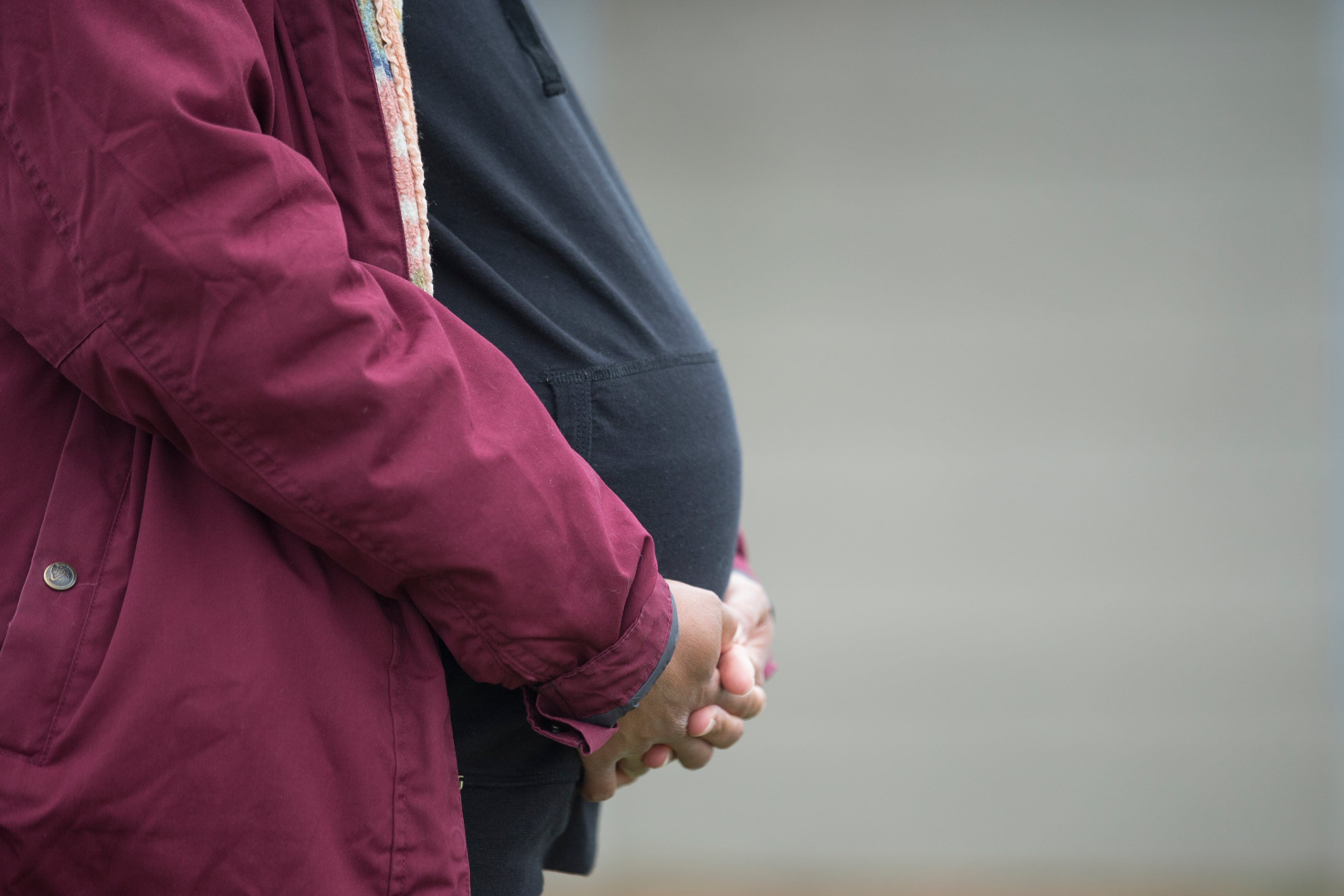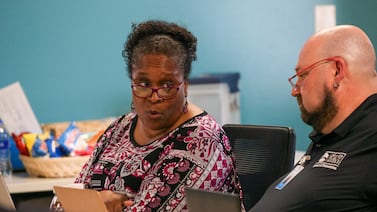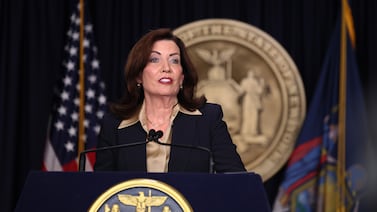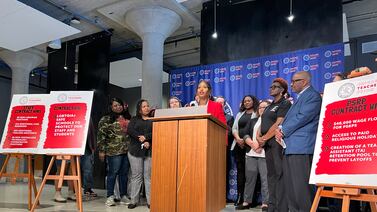This story was originally published by Healthbeat. Sign up to receive Healthbeat’s free New York City newsletter.
In 2020, Daniela DeJesus Gutierrez was barely getting by — and had a baby on the way.
As the Covid-19 pandemic raged, she’d lost most of her employment and was trapped in a harmful relationship. But a lifeline emerged: a pilot program distributing cash to 100 low-income mothers in New York City.
When the first payment arrived in 2021, Gutierrez cried. And the support kept coming: $500 each month, for three years. Bolstered by newfound financial stability, Gutierrez was able to care for her newborn, leave her partner, and eventually find a new job.
“I was able to just go anywhere I wanted to go, and buy whatever food I wanted to get for my kid,” said Gutierrez, now 31, who lives in Central Harlem. “When he was sick, if I needed to get medicine and the insurance didn’t cover it, I could buy it.”
Last week, the New York City Council launched a new version of the initiative, with $1.5 million in city funds. The program, run through The Bridge Project organization, will provide unconditional cash support to 161 pregnant women who are homeless, at risk of losing housing, or facing domestic violence. Participants will receive a $2,500 stipend before giving birth, $1,000 per month for 15 months, and $500 per month for the following 21 months.
It’s the first time that New York City has funded a guaranteed income program, according to local leaders, and reflects an emerging movement in the United States to alleviate poverty and improve health outcomes through the simple act of cash distribution. In recent years, guaranteed income programs have sprung up in cities like Jackson, Mississippi, Gary, Indiana, and Stockton, California, and a growing body of scientific research is exploring the impact of cash transfers on families' health and early childhood development.
Earlier this year, Dr. Mona Hanna, a Michigan pediatrician, launched Rx Kids, which provides no-strings-attached financial support to every pregnant mother in Flint, through each baby’s first year.
“We haven’t been able to tackle a kind of root-cause pathogen, which is poverty,” Hanna said. “We increasingly know the science of what happens when you are born into, and grow up, in poverty. When it’s early, when it’s chronic and when it’s concentrated — when your neighbors are poor — it is a pathogen. It alters your entire life trajectory, especially in that prenatal, early childhood window.”
A ‘moral’ intervention from city government
New York City’s guaranteed income program is launching in a city where about 1 in 4 children live in poverty, and where more than 146,000 students experienced homelessness during the last school year, a record high. Supporters of the initiative say it’s both an anti-poverty measure and an attempt to reduce rates of maternal mortality, which disproportionately impact Black and Hispanic New Yorkers.
“We always say a budget is a moral document, and by investing in these families, we’re showing that we care about the future, and we want to make sure that everybody has the same opportunity to thrive,” said Council Member Crystal Hudson, who sponsored the bill that enabled city-backed unconditional cash assistance.
In 2021, about a quarter of the 58 people who died of pregnancy-associated mortality in New York City had experienced homelessness at some point, according to city data.
The city’s shelter system is especially difficult to navigate for pregnant women and young mothers, since shelters are often far from prenatal care and children’s schools, said Dave Giffen, the executive director of the Coalition for the Homeless. In 2023, more than 1,700 babies were born into the shelter system, according to city data obtained by Giffen’s organization.
Many people in the shelter system just need a few thousand dollars to get back on track, Giffen added. And while direct cash transfer programs are not a solution for everything, he said, they represent “a solution for a lot of people.”
“It’s the most intuitive response you can think of: somebody doesn’t have resources and money, and you give them money and their life gets better,” he said.
The Bridge Project received more than 1,000 applications for just 161 spots, said Laura Clancy, the organization’s executive director. Participants had to be at least 18 years old, city residents, at least 23 weeks pregnant, and meet the U.S. Department of Housing and Urban Development’s definition of homelessness.
Through previous cohorts of its cash transfer initiatives, The Bridge Project has tracked improvements in participants’ housing security, access to food, and ability to meet day-to-day expenses, Clancy noted. While the program does not provide full case management, it does help participants connect to other organizations and agencies, she said.
The first payment for the city’s new program went out a few weeks ago. Participants can use the funds however they want.
“There’s tremendous dignity in giving people cash and basically saying, ‘We trust you. You’re going to make good decisions,’” Clancy said.
The research behind cash transfer programs
As guaranteed income programs emerge across the country, supporters say they offer common-sense solutions to intractable social and public health issues. Many draw on research conducted throughout the world linking cash transfer programs to improved health outcomes, from fewer preterm births to lower rates of postpartum depression.
Hanna, the pediatrician — who helped expose Flint’s water crisis a decade ago — said she was inspired to create Rx Kids, in part, by the success of the expanded Child Tax Credit, which cut child poverty in half in 2021.
In Flint, Rx Kids has “prescribed” more than $5 million to more than 1,200 mothers and babies this year, Hanna said. Program participants have reported expanded access to prenatal care, decreased postpartum depression, improved food satisfaction — and no evictions. The program, funded through a public-private partnership, will soon expand to other parts of Michigan, Hanna said.
An article published last year in Nature found that large-scale, government-led cash transfer programs in low- and middle-income countries worldwide were associated with “significant reductions” in mortality among women and children under age 5.
In an interview, lead author Dr. Aaron Richterman, an assistant professor of medicine in the Division of Infectious Diseases at the Hospital of the University of Pennsylvania, noted that the cash transfer initiatives that have emerged in America, like New York City’s effort, are far smaller than the large-scale programs his team studied.
“People are trying to figure out, how do these kinds of things fit in, and do they work, and what do they work to do?” Richterman said. “There are some very entrenched issues in the U.S., and I think it’s an open question how a program like this is really going to be able to fight against these sort of structural issues that people are exposed to for their entire lifetime, in terms of our food environment, or racial segregation.”
Gutierrez, for her part, isn’t sure how she would have survived those difficult years of early parenthood without regular cash infusions.
Unpaid utility bills didn’t weigh on her, she said, and she could obtain the early intervention she needed for her son, who has autism. Her self-confidence increased because she wasn’t “so suffocated.”
“I had that financial stability,” she said. “Honestly, those $500 stretched a long way. Now, I’m actually feeling it, because it’s not there anymore.”
Eliza Fawcett is a reporter covering public health in New York City for Healthbeat. Contact Eliza at efawcett@healthbeat.org .







